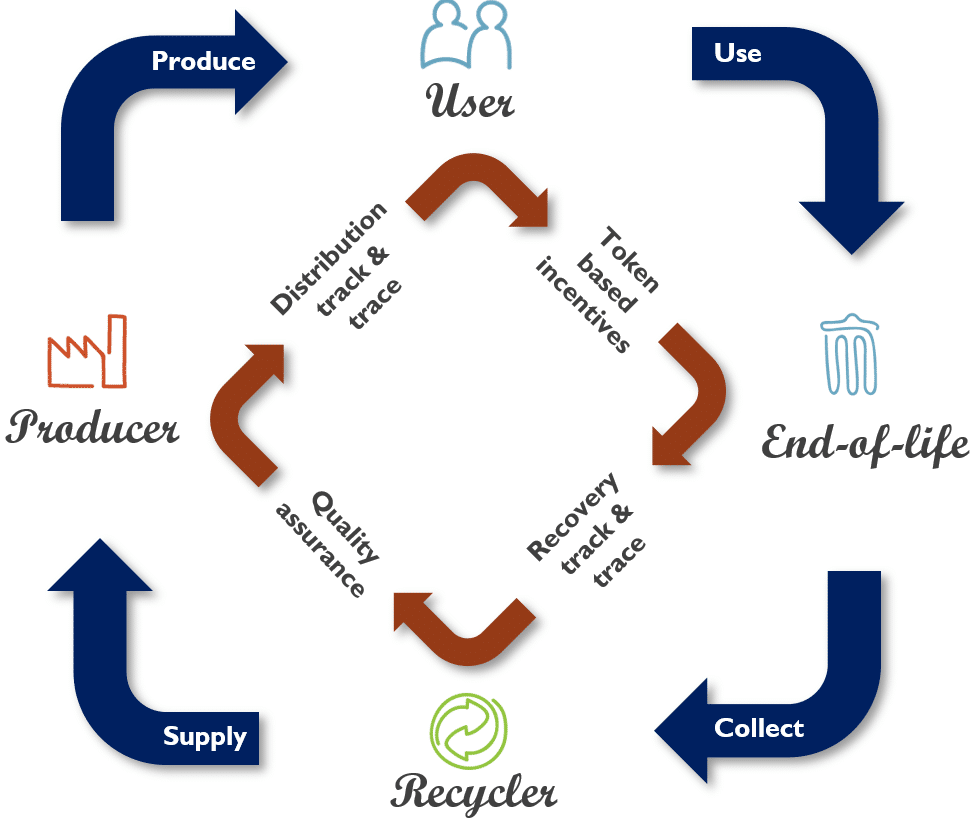How Blockchain Technology can make a Difference
Pau Huguet Ferran and Eelco van IJken
Changing context
Unsustainable packaging materials are increasingly being challenged by society. Single-use plastics are being phased-out, and re-use and circular business models are increasingly being promoted. These changing circumstances require businesses to adjust their production and logistical systems to stay aligned with the direction of the market by moving towards circular models.
Blockchain
Specifically permissioned distributed ledger technologies,such as blockchain, provide an opportunity for the reorganisation of value chains. This technology offers a group of (trusted) partners a tamper proof system for tracking and tracing products or packaging. Implementation results in reduced transaction costs for the participating partners through, for instance, automatic transaction triggers, lower costs for compliance audits, while at the same time provides real time visibility and provenance information for all involved partners.
With these features, blockchain technology provides an opportunity for establishing a circular value chain, keeping the involved partners aligned with the overall direction of the market. By grabbing this opportunity for circularity, the involved partners can decide to invest in reducing plastic packaging use across the logistical system, through for instance re-use of used packaging or material substitution, while still driving logistical costs down.
New engagement opportunities
The business value derived from implementing blockchain technology extends beyond cost saving or staying aligned with the changing market circumstances. Blockchain solutions also open up new ways to engage with end-users (most likely consumers) through token based marketplaces. Such a token based system, designed to stimulate the collection of used packaging material coupled with a reward mechanism created to pay these collection efforts, offers engagement with end-users around the products beyond the purchasing transactions.
Besides new engagement and branding opportunities, such a mechanism would help to collect re-used material in sufficient volumes to enable new business models for re-use or to implement other circular end-of-live solutions. However, companies must be aware that closing the loop will bring new stakeholders, like recycling companies, into the group of trusted parties. These new players will benefit from the provenance insight provided through the blockchain records. At the same time, the existing value chain partners will get new opportunities to credibly deal with their extended manufacturer responsibility, and will open new opportunities for packaging redesign or material substitution.
So what is next?
If you want to know more about how blockchain technology can suit your needs, or how circularity can be increased in your value chain operations, the eCircular Flagship partners can help you with the needed expertise. The involved partners represent a European wide network of world-class institutions, with a collective experience around plastic use reduction strategies, circular value chain redesign, and supply chain digitalization. The eCircular consortium will be able to advice you from the initial idea phase until investment case preparation.
If you want to know more, please contact us:
Pau Huguet Ferran / Eelco van IJken



